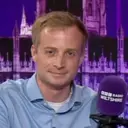Breaking for lunchpublished at 13:30 GMT 2 December 2024
The inquiry has broken for lunch now.
This afternoon we'll hear from Wiltshire Police after they were criticised this morning by lawyers for the Dawn Sturgess family.
During lunch we'll look back on some of this morning's evidence.




